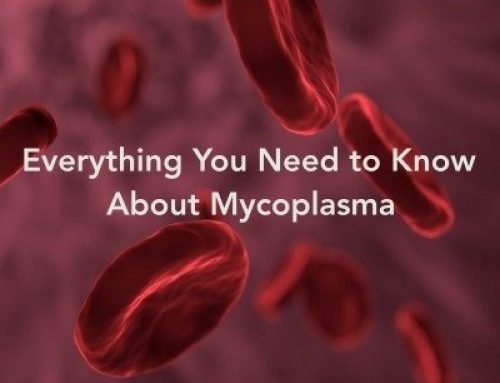The Pros & Cons of Immunization
According to the World Health Organization, immunization is the process through which a person is made resistant to an illness, usually by the administration of vaccines. They stimulate the immunity of the body to keep the person safe from infections and illnesses. This is a proven tool for eliminating diseases and estimates show that it prevents between 2 to 3 million deaths on a yearly basis. The CDC recommends 29 doses of 9 vaccines and a yearly flu shot for children from 0 to 6 years.
Proponents of immunization claim that vaccines are safe, effective, and one of the major health improvements of the 20th century and add that they are saving children’s lives from illnesses like polio, rubella, and diphtheria. They claim that adverse reactions to vaccines may happen, but very rarely. However, experts who are against immunization disagree and actually find vaccines to be harmful to the health because they cause adverse side effects, contain suspicious ingredients, and menace the individual freedom of making our own medical choices because of the government’s interfering.
What Are Vaccines & How Do They Work?
As explained on Science News for Students, our immunity is how the body fights off germs. When a germ attacks us, the immunity releases cells to destroy it. Nonetheless, there are situations when the immunity is not strong enough to avert an illness or an infection from damaging or killing us. To additionally enhance the power of the immunity, people receive vaccines.
These are substances which, as explained on Science News for Students, prepare the immune system to fight against pathogens by imitating an infection and tricking the immunity into “memorizing” that pathogen without ever having to fight it off.
When the immunity does come across the actual pathogen it can confront it and as a result, you will not get sick. In order to destroy invaders, the immunity looks for antigens and every germ or a virus has its own specific antigens. When it finds them, the immunity releases antibodies or molecules that lock onto the antigens and prevent further damage and also signalize other immune cells to kill the specific germ and eliminate from the body.
Vaccines can be made with a weakened form of some germ and with dead or deactivated forms of the germs and they are usually administered by injection or a nasal spray.
The Advantages of Immunization
- Vaccines save lives
As emphasized on Vaccines, immunization saves 2.5 million children from preventable illnesses on a yearly basis and the vaccine for measles has lowered children death from measles by 74 percent. What’s more, according to the CDC, 732,000 American kids were rescued from death with the help of vaccines.
- They are safe
When used in big amounts, aluminium and formaldehyde, some of the ingredients that are found in vaccines, can be harmful; however, this is not the case with vaccines. And, the FDA requires up to a decade or more of testing prior to licensing a vaccine, followed by regular monitoring by the FDA and CDC for optimal safety.
- The harmful side effects are very rare
According to Vaccines, the major side effect of vaccines, which is a serious allergic reaction, happens in one per several hundred thousand to one per million vaccinations. This being said, there is actually a higher risk of being struck by lightning than experiencing an allergic reaction to the measles vaccine.
- Keep the community safe
“Herd immunity” refers to most members of a community being protected by immunization which decreases the chance for outbreak of the disease. It is important to note than those who cannot receive a vaccine because of age or poor health or some other reason, strongly rely on the herd immunity to avert diseases that are preventable through immunization.
- Save time and money
With certainty, vaccines are a much smaller cost, both in terms of money and time, than parents who are missing work hours to take care for a sick child, paying for disability care, and have to meet other medical costs for treatment.
- Protect next generations
As explained on Vaccines, when communities are vaccinated, the risk of diseases for the following generations reduces and when mothers are vaccinated, they protect their unborn child from viruses that may increase the chance for birth defects characterized by vision loss, liver damage, mental disabilities, etc.
The Disadvantages of Immunization
- They carry a risk of severe allergic reaction
According to the CDC, vaccines come with a serious side effect which is a dangerous allergic reaction and it approximately happens in one per million children. What’s more, the MMR and DTaP vaccines have been associated with long-term brain damage, seizures, coma, and reduction in consciousness. As noted by the NVIC, vaccines may be connected to asthma, autism, diabetes, and learning disabilities.
- Full of dangerous ingredients
As seen on Vaccines, thimerosal, a mercury compound, which is present in vaccines, can cause autism whereas the aluminium can lead to neurological damage. Moreover, excessive exposure to formaldehyde, a carcinogen, can trigger reduction in cognition, coma, cardiac impairment, and even death. Plenty of other ingredients in vaccines are up for debate too, from CTMB and 2-phenoxyethanol to chicken egg protein.
- Limit the freedom of choice
Anti-vaccine proponents believe that personal medical decisions should not be made by the government, but by parents and caregivers. This is crucial if we take into consideration that the most basic freedom is the freedom over our physical body and living in a free society means that we have sovereignty over our own bodies. Any other option than this means that the government is the owner of our bodies.
- Contain objectionable ingredients
A lot of vaccines are made with animal products like insect cells, eggs from chicken, pig gelatine, bovine casein, as well as cells from African Green monkeys, which is in conflict with people who are vegetarians or vegans.
- They are unnatural
A lot of organizations claim that natural infection is almost always better for the immunity than vaccines that are regarded as an artificial immunity. In addition, immunity from an illness follows after a single infection whereas the one from vaccines happens requires several dosages. Vaccines contravene with the law of natural immune defences by the very act of intentionally releasing a potential pathogen and toxic ingredients into the bloodstream.
- Questionable safety
As emphasized on Vaccines, a lot of experts believe that the main purpose of the pharmaceutical industry is to profit from selling medications, including selling vaccines.
Final Thoughts on Immunization
Without doubt, immunization is one of the greatest health advancements of the 20th century which has significantly bettered the collective health by averting serious health problems in both children and adults.
Vaccines give our immunities the much needed additional power to fight off infectious illnesses and they are properly tested, regulated, and monitored by the FDA and CDC. They help us keep future generations safe and free of vaccine-preventable illnesses. But, not everyone agrees with immunization and a lot of experts deem them to be detrimental to our health because of the dangerous and objectionable ingredients they contain and the severe health complications they can trigger. There has also been a rise in the percentage of people who decline and oppose vaccines because they restrain their freedom of making medical choices for themselves and for their children.



